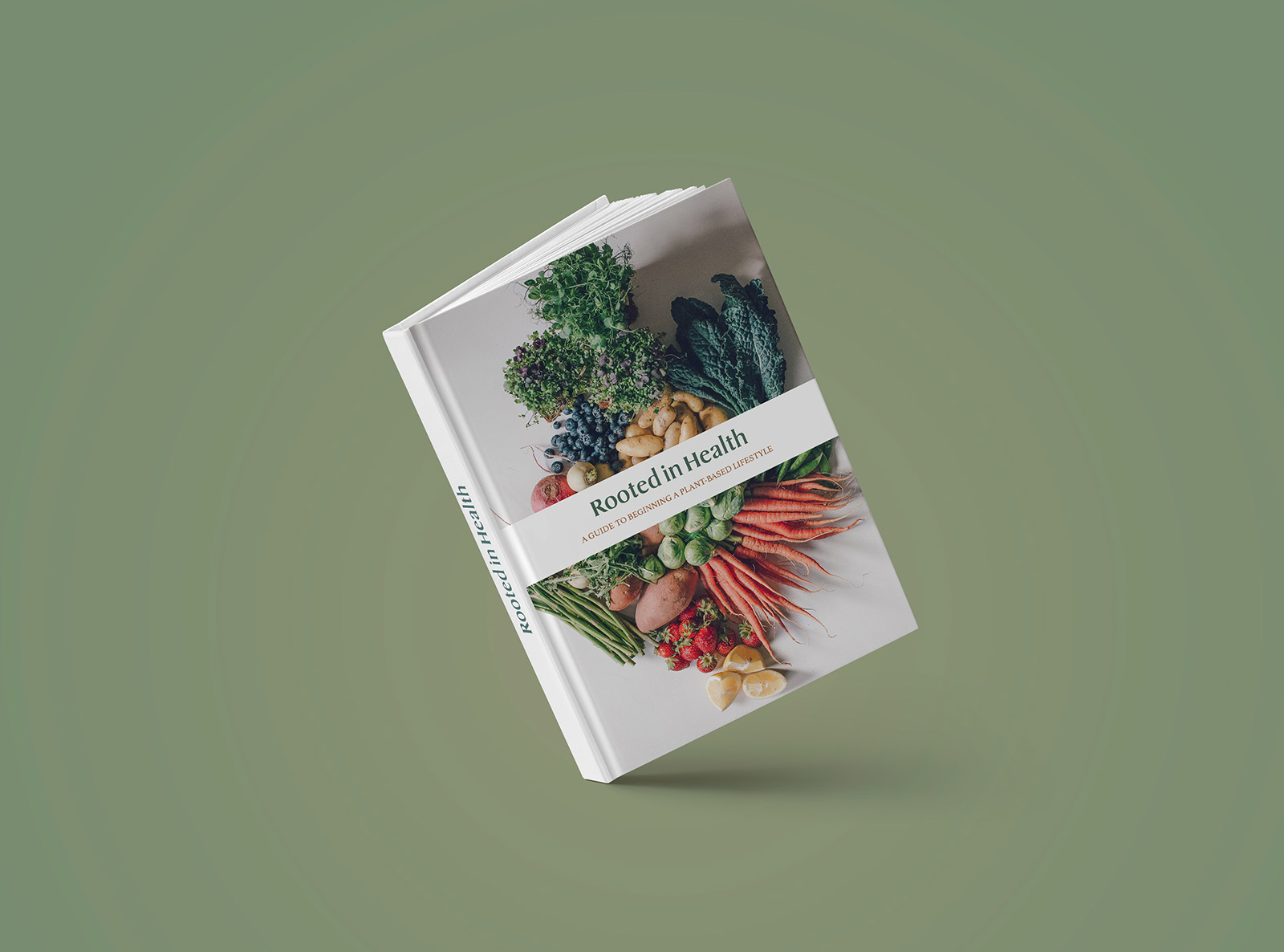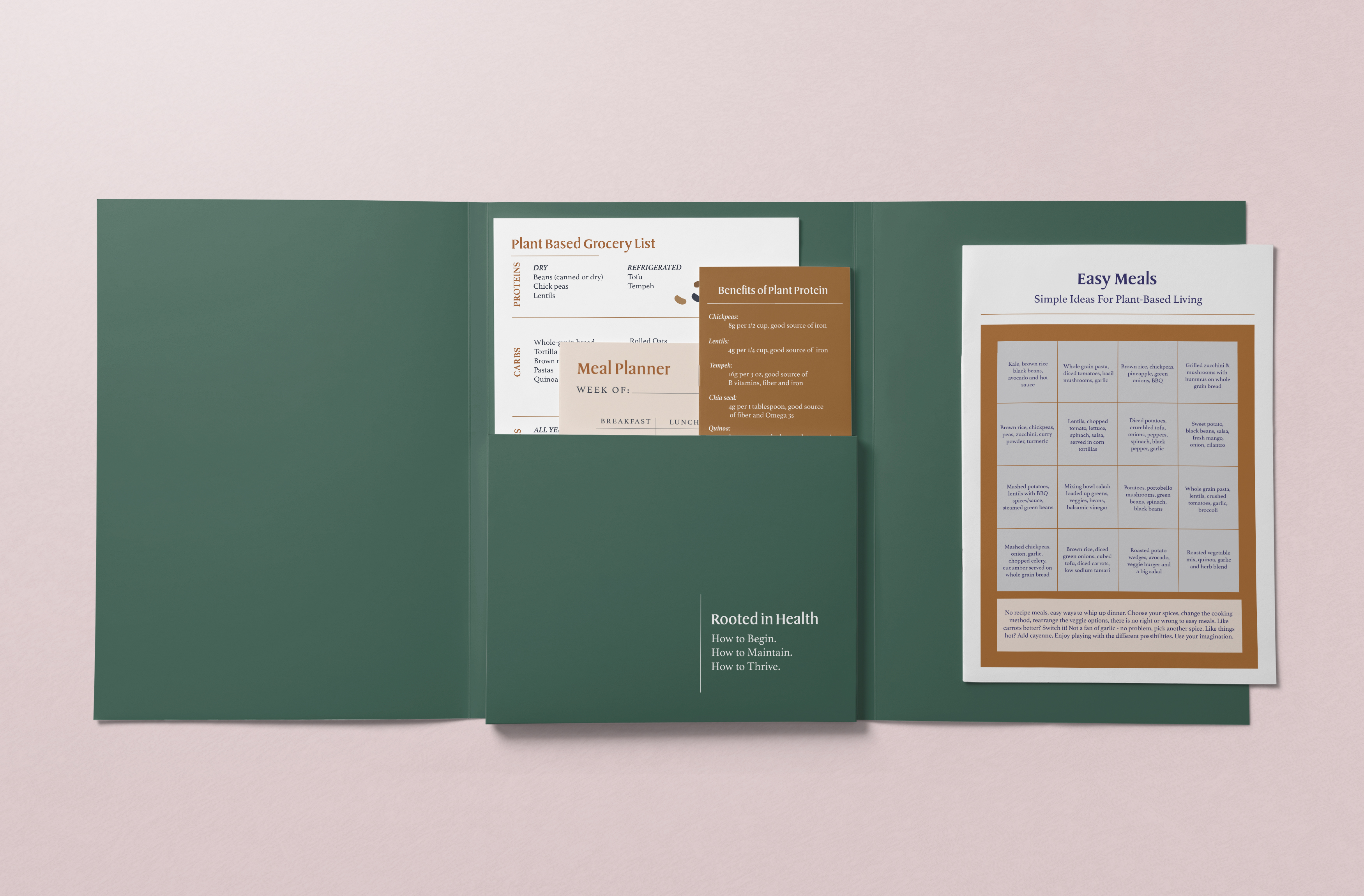
The Problem
Despite an increasing interest in plant-based eating patterns such as vegetarian and vegan, heart disease is still the #1 killer in America. Research over many years has linked plant-based diets to lower rates of heart disease, type 2 diabetes, and some cancers, but this is far from common knowledge.
How might we educate people ages 20-25 about the long-term health benefits of integrating a plant-based diet?
Success Statement
Rooted in Health is a guide book to show individuals in their early 20s how to begin a plant-based diet. This book answers frequently asked questions, educates the user about plant-based nutrition, and gives sample grocery lists and recipes to provide them with the foundation to begin this lifestyle.
Target Audience
20-25 year olds looking to improve their health and longevity. I chose this age range as these individuals are most receptive to change as they establish their own lifestyle.
Research
My research began by reading case studies, watching documentaries and reading books about how a plant-based diet affects disease and longevity. Did you know there are cultures around the world that have virtually no heart disease or diabetes? I found the vast amount of research on this topic to be convincing. After my secondary research was complete, I began my primary research of surveys and interviews with my target audience. I asked them a set of questions asking them to define the term “plant-based” and their knowledge on the lifestyle. With over 150 responses, I discovered when asked the reasons for not switching to a plant-based diet, 50% wouldn’t know where to begin, 34% stated it’s too expensive and 16% said it’s time consuming. Following the survey, I conducted more in-depth interviews, in which I learned where people were miseducated on the topic and what the barriers were preventing them from beginning the diet.
Design Process
From my research, I learned there were a lot of barriers that were holding people back from starting a plant-based lifestyle such as: misconceptions, not knowing what to buy at the grocery store, worrying about protein, and being unsure about how to prepare meals. I wanted to address all of these issues, and a book was the most comprehensive way to achieve this. I interviewed my target audience to see if a website/ebook or physical book would be more effective and 88% profoundly stated they would prefer a physical copy. I wanted the aesthetic of the book to feel natural and “rooted” to emphasize the plant-centric theme. Geometric drawings of food were included to create a more playful and enticing theme to the book.
Design Solution
The book begins by addressing the misconceptions and answers frequently asked questions one may have before making a dietary shift. The health benefits are explained to further educate the user in addition to a list of resources at the back of the book for further research. Next, is a perforated grocery list which is perfect for taking to the store with you. My target audience was also concerned with money, so to show that a plant-based lifestyle doesn’t have to be expensive, I included the “price per serving” on each recipe. Interviews with individuals ages 20-25 revealed that they like to be able to customize their lifestyle or possessions to tailor it to them. Accordingly, an auxiliary pack is included with the purchase of the book. The pack consists of a meal planner, easy meal ideas, best sources of plant protein and provides the user with a folder to put their grocery lists or other recipes they may come across. In conclusion, this book is not meant to convert individuals to a plant-based diet overnight, but rather to inform them about the health benefits and show them simple ways to begin.









